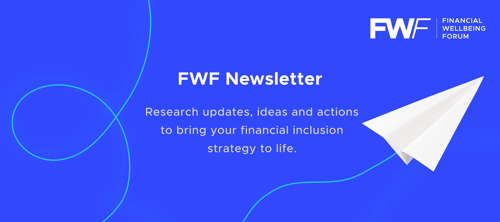The State of Financial Wellbeing research programme explores how financial wellbeing is experienced and understood within the context of the workplace.
There is much work to do - but there are clear steps employers can take, to shift their financial wellbeing strategy from words into actions.
The recommendations below are practical and proven for improving financial wellbeing and you won’t go amiss by implementing as many of these as you can.
Opportunity:
Volatile working hours create shaky financial foundations. Lower earners are more likely
to experience volatility, and this links to worse financial outcomes.
Recommendation:
Aim to meet the standard for living hours, as provided by the Living Wage Foundation.
The Living Wage Foundation has created a standard for employers called Living Hours.
In it they outline three commitments employers should make to provide financial stability for employees.
The Living Hours standard calls on employers to provide the right to:
1. Decent notice period for shifts: of at least 4 weeks’ notice, with guaranteed
payment if shifts are cancelled within this notice period
2. The right to a contract that reflects accurate hours worked
3. A guaranteed minimum of 16 hours a week (unless the worker requests otherwise)
Opportunity:
A regular savings habit is strongly correlated with better financial satisfaction and lower financial worries. Lower earners have 8x less savings than higher earners and are more likely to have £0 in savings.
Recommendation:
Implement a payroll savings programme and ideally structure it on an opt-out basis so that employees build up savings by default.
Access to an appropriate savings product is an important component of financial inclusion. There’s a strong evidence base that payroll autosave is a highly effective way to get individuals on low and variable income to create a savings habit and start building a savings buffer.
Recent research from Nest Insight shows that savings participation can reach as high as 71% of eligible employees with this approach. Wagestream has been an active participant in this savings research trial, and as such can already implement opt-out payroll savings for employers. There are also many other pathways to delivering a successful payroll savings programme. Nest Insight has written a guide for employers outlining different options for making this work, and the technical and regulatory considerations for each one.
Opportunity:
There’s an action gap when it comes to implementing well known financial behaviours.
Individuals know what they should be doing, but struggle to make it happen.
Recommendation:
Review your workplace financial wellbeing programme and benefits through the lens of how action-oriented they are and prioritise providing financial security benefits that are useful and accessible for the whole workforce.
Be aware that the financial circumstances and needs of the HR team who assess these offerings will often be very different from the financial circumstances and needs of the workers who use them.
Focus on providing a wellbeing toolkit that’s tailored to the needs of your workforce and considers their circumstances including volatility of earnings. Financial education can be helpful, but unless it’s paired with actionable and accessible financial security tools it’s likely it will fall short of the mark.
Download your copy of this action-plan.
Key takeaways
73%
Financially-stressed workers are more likely to move to an employer who cares about their financial wellbeing
62%
Employers do not have a well-articulated financial wellbeing strategy
Adoption
of benefits is a useful measure for how staff are feeling and what they need most from their employer
Want more guides and resources like this, sent straight to your inbox?

